- Letters: Murdered deputy was preparing to reveal law enforcement corruption
- Officer: Greenville Police Chief who investigated killings as young detective kept missing documents locked in an office safe
- GPD officers clash over who last held file the 2019 chief believed might exonerate Charles Wakefield, Jr.
A South Carolina State Law Enforcement Division (SLED) report into missing documents related to the 1975 Frank and Rufus Looper murders suggests Mike Bridges, a lead detective in the killings who went on to be Greenville’s police chief, kept the documents locked in a safe in his office prior to his retirement.
SLED’s 20-page investigative summary, obtained by Murder, etc. through a Freedom of Information request, details what happened behind the scenes at the Greenville Police Department when officers found documents that might have exonerated Charles Wakefield, Jr. in the Looper murders. SLED launched its investigation in December 2019 after the GPD admitted the documents had disappeared.
Wakefield and his defense team never knew the documents existed.
SLED agent Adam Slizewski interviewed 20 people including three former Greenville Police chiefs, the current interim chief Howie Thompson, several active and retired officers, Murder, etc. producer Brad Willis, and 1970s businessman and two-time candidate for Greenville County Sheriff, Leonard Brown, who appeared multiple times in the Murder, etc. podcast.
Slizewski filed his report on February 19, 2020 and delivered it to 13th Circuit Solicitor Walt Wilkins’ office. A deputy solicitor in Wilkins’ office, William McMaster III, replied with a letter indicating the Solicitor’s Office would not take the case. Wilkins’ father, Billy Wilkins, led the prosecution against Wakefield in 1975.
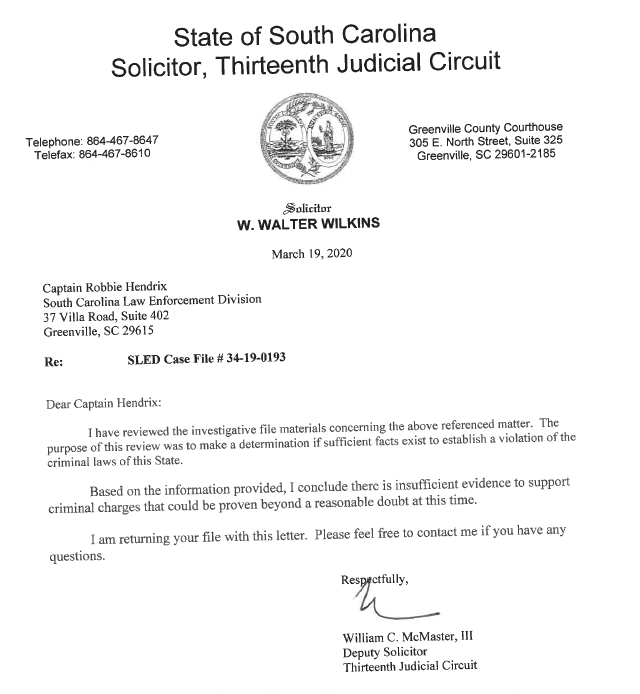
McMaster wrote, “I conclude there is insufficient evidence to support criminal charges that could be proven beyond a reasonable doubt at this time.”
Nevertheless, SLED’s exhaustive investigation into the missing documents details Bridges’ alleged connection to the documents, the path the documents took from the time of their discovery until they went missing, and two former GPD officers offering starkly different accounts of who last saw the file before it disappeared.
THE DISCOVERY
According to SLED’s report, the documents related to the Looper murders first surfaced in 2018 when three Greenville officers began emptying unused staff lockers in the Greenville County Law Enforcement Center.
Former police chief Ken Miller told agents he’d first received the file from Captain Joe Browning, one of several officers who had been emptying unclaimed lockers in advance of a planned remodeling project. Browning later retired to take over security for Prisma Health.
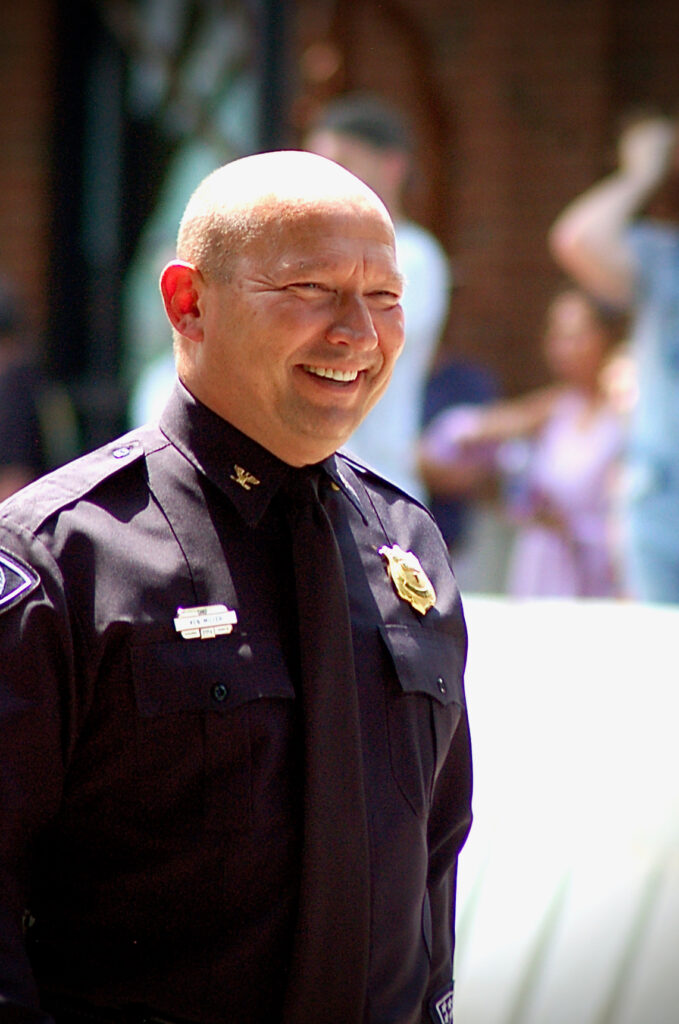
Miller told SLED the file contained several letters that detailed a relationship between a woman and 1975 Greenville County Sheriff Cash Williams. At the time of his death, Lt. Frank Looper was the lead narcotics detective under Williams. Miller said the file also contained several photographs of Sheriff Williams with a woman.
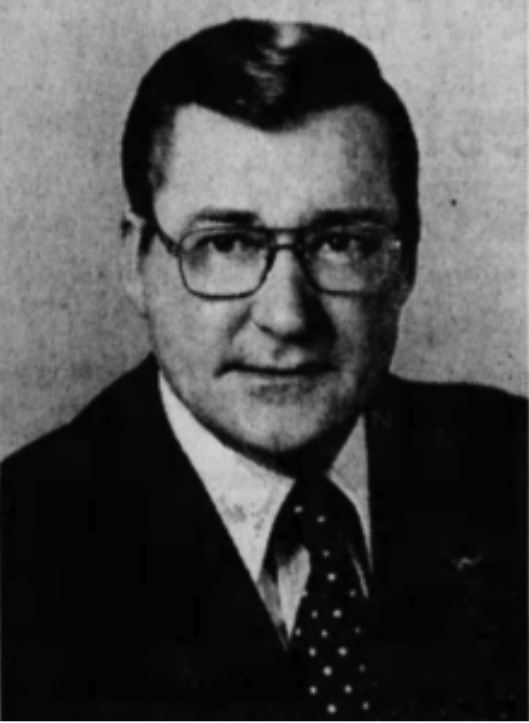
According to the investigation summary, Miller told agents, “the female spoke of her relationship with Sheriff Williams, her knowledge of the Looper murders, and subsequent arrest of Charles Wakefield. She also wrote she believed the GPD charged the wrong person and Wakefield had been framed.”
Another officer told SLED agents, the woman had written, “she was scared of Sheriff Williams, that he was ‘crooked,’ and she was scared to leave him.”
In February 1976, a Greenville County jury convicted Wakefield, and Judge Frank Eppes sentenced Wakefield to death. A 1978 United States Supreme Court ruling vacated Wakefield’s death sentence. He ultimately spent 35 years in prison before getting released on parole in 2010.
Miller said the letters indicated, “Sheriff Williams had several corrupt deputies she believed were responsible for the murders and that Lt. Frank Looper had planned to publicly announce the corruptions and crimes of Sheriff Williams and other deputies the day after he and his father were murdered.”
Miller told SLED agents he took the letters home to read them and brought them back to the Law Enforcement Center the next day where he turned them over to violent crimes detective Andrew Smith. According to the report, Smith later brought the file back to Miller and said his current caseload was too time-consuming to fully review the newly-discovered letters.
THE PAPER TRAIL
According to the SLED report, Chief Miller, who resigned from the GPD December 31, 2019, said he didn’t consider the letters and photos to be evidence. Police say no one copied, photographed, or otherwise documented the discovery, nor was the file ever logged into Property and Evidence at the police department. Instead, officers said, a series of detectives passed the file from one officer to another until it eventually disappeared without any clear indication who last saw it.
Miller told agents he’d given the file to Detective Rick Woodall, a retired officer who had returned to the GPD to work on cold cases. At the time police discovered the files, Woodall and another retired officer, Don Belue, were working cold cases alongside a retired FBI agent and Detective Smith.

In September 2019, Miller asked the agents to return the file to him so he could let an innocence advocacy group in North Carolina review the case. That’s when the cold case unit told Miller they couldn’t find the file.
The previous month, Miller had told the Greenville Public Safety Citizen Review Board about the letters and indicated his department was working on the case. When told the file was missing, he ordered his officers to begin searching for it.
A month later, Murder, etc. broadcast audio of Miller talking to the Citizen Review Board and later reported the police couldn’t produce the documents. In December 2019, the GPD admitted, despite their best efforts, they could not find the letters and didn’t expect to make any further progress in the search.
While the SLED report offers no indication of where the documents might have ended up, it does reveal a series of conflicting statements from active and retired officers that offer more clarity into the point at which the file disappeared.
HE SAID, SHE SAID
As the file moved around the Greenville Police Department, several officers told SLED they gave it scant attention.
According to the SLED report, Detective Andrew Smith “had not heard of the Looper murders” and “did not understand what was so important about the file.”
Detective Rick Woodall, who started working at the GPD in 1975, “did not actually review the file other than opening the file folder and seeing letters and Polaroid photographs. He did not read the letters. He ‘glanced’ at them.”
Detective Don Belue, another cold case detective who started with the GPD in 1965, “glanced at the file. He saw envelopes and paper in the file. He did not read it.”
No one interviewed in the SLED report disagrees with the file’s journey from the LEC locker to cold case detectives Woodall and Belue. However, from that moment forward, officer accounts begin to differ significantly.
Woodall told Chief Miller and the investigating SLED agents that he put the file on another detective’s desk. That detective, Melissa Lawson, was the supervisor of violent crimes and retired in September 2018. She told agents she knew Browning had found the file and had directed him to put the file among the cold case files, but that she wasn’t aware Browning had instead taken the file to Chief Miller.
Lawson told agents Woodall never gave her the file containing the letters. According to the report, Lawson said, “She was not given the file by Det. Woodall…She believed Det. Woodall was confused when he said he gave her the file folder.”
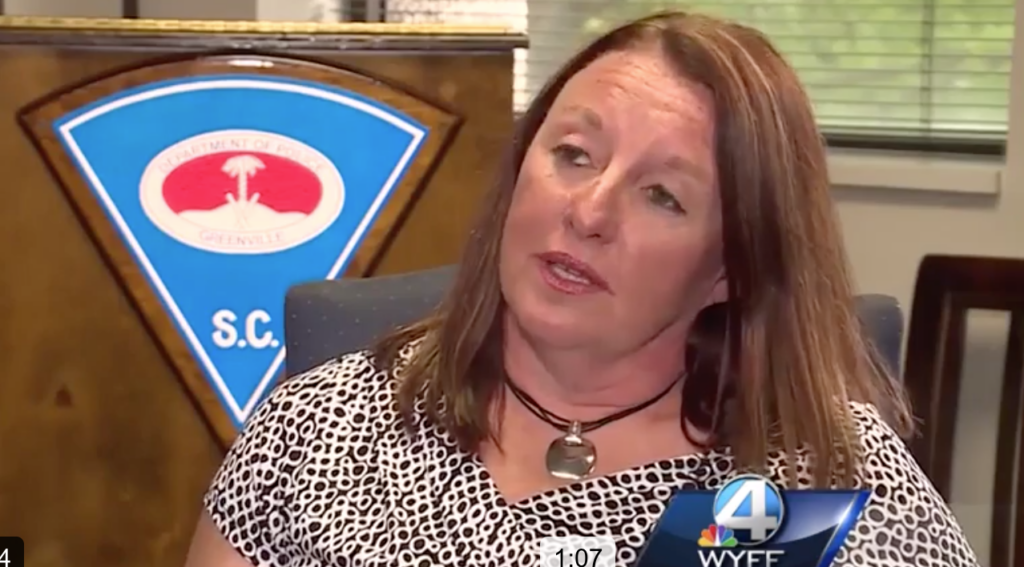
Lawson told agents the only document she had seen related to the Looper murders was a letter from Murder, etc. producer Brad Willis which had been delivered to her in a manila envelope. Nevertheless, she denied ever seeing the file Browning found in the LEC locker room and told agents she didn’t believe Woodall ever gave it to her.
Editor’s note: SLED interviewed Willis as part of its investigation, and Willis didn’t recall ever sending a letter to the GPD related to the Looper investigation. Willis told a SLED agent that since he began his podcast efforts in 2015, his first contact with the GPD related to the Looper murders occurred in 2018 when he emailed the GPD’s public information officer.
THE CHIEF’S SAFE
Prior to the SLED report, the GPD never publicly revealed allegations that former Police Chief Mike Bridges kept the file locked in an office safe. Bridges was one of the two lead detectives in the Looper case and was the only GPD officer to testify against Wakefield in his death penalty trial.
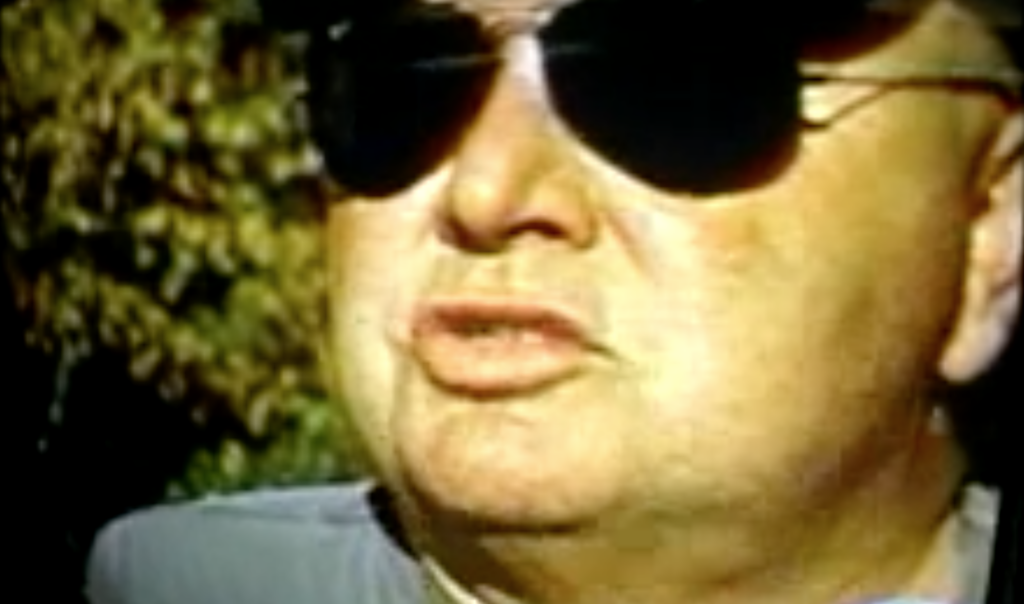
Chief Miller told SLED, he first learned about the office safe from the officer who found the file in the locker, Joe Browning. According to the report, Browning told Miller the Greenville Police Chief had kept a safe in the closet of his office. Browning told Miller that his predecessor, Chief Terri WIlfong, had the safe removed.
The report said another officer, Corporal Collis Flavel, confirmed the existence of the safe and told agents Wilfong had found a gun inside the safe. Flavel said a superior officer directed him to investigate the gun, and when he did, he discovered it was the weapon used to kill Greenville police officer William Frank Chasteen in 1971. Nothing in the report explains why that murder weapon would be in the chief’s safe.
In late summer 2019, Chief Miller asked retired officer Terry Christy to come back to the GPD and review the Looper murder case. Christy told SLED he started working to collect information on the Looper files and his fellow officers told him the newly-discovered file had disappeared. During the SLED interview, Christy told an agent he’d once been responsible for the police department’s budget and had access to the chief’s safe. Christy confirmed seeing documents related to the Looper murders in the safe. He also confirmed seeing a gun in the safe that he believed was responsible for the murder of a GPD officer.
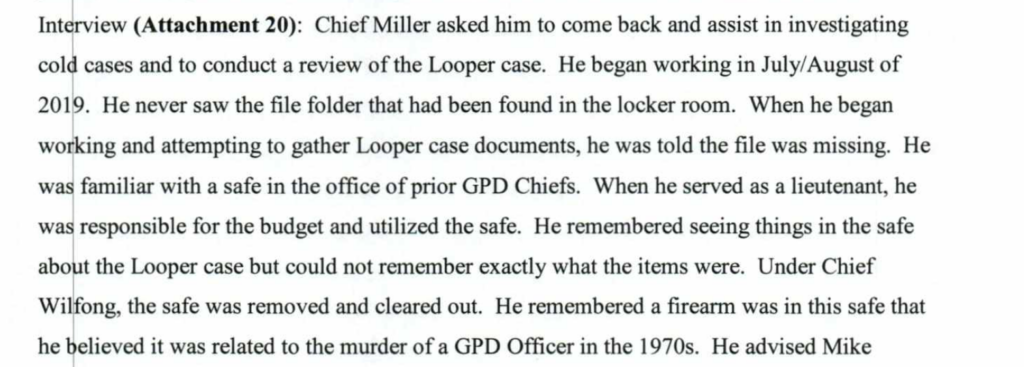
Former GPD officer Mike Gambrell told SLED agents he’d first seen the safe in the office when Mike Bridges was chief.
SLED also interviewed former chief Willie Johnson who told an agent that when he took over for Bridges, there was nothing in the safe related to the Looper murders.
THE EVIDENCE MAN
Two years before Frank and Rufus Looper died, a man named Bob Burns started working for the GPD and stayed there for more than 40 years.
SLED agents interviewed Burns in early 2020. He told them he’d become the Property and Evidence manager at the GPD under Chief Mike Bridges.
Burns told a SLED agent he had once discovered the Looper murder case file in the evidence room rather than the records room where the department normally stored closed case files
Burns later went to the decommissioned Greenville City Jail and picked up files that once belonged to one-time chief Harold Jennings and Looper murders investigator Jim Christopher.
Burns told SLED the search revealed a photograph of Sheriff Cash Williams walking into an Atlanta hotel with a woman. He said he put that photo and some of the other files in his personal locker and stored other documents in the locker that belonged to Ross Sorrow, an officer killed in the line of duty in 1996.
Burns revealed to a SLED agent that he told Bridges the Looper case file should be in the records room rather than Property and Evidence. At the same time, he mentioned finding the photo of Sheriff Williams and the woman at the Atlanta hotel.
According to the report, “Chief Bridges told him he wanted to review [the documents] first to determine what went to the records division. Chief Bridges told him he would get back with him.”
Burns told a SLED agent he knew the gun that killed Officer Chasteen was in the chief’s safe, but he didn’t have any knowledge of the Chief storing Looper documents in the safe.
SLED’s investigation into the missing Looper documents revealed more details about the GPD’s prior knowledge of a .32 Rossi revolver Murder, etc. producers discovered in October 2019.
In 1975, SLED’s ballistics expert told the GPD he believed a .32 Rossi fired the bullets that killed the Loopers. Police tested more than 40 guns but never found the murder weapon.
In 2019, Murder, etc. revealed it had discovered that the son of woman who testified against Wakefield owned a .32 Rossi revolver from the late 1960s or early 1970s.
Don McIntyre told Murder, etc. he found the gun among his mother, Mae’s, possessions. Mae McIntyre came forward more than eight months after the murders and said she’d seen Charles Wakefield at the scene. Her accounts of the murder scene and man she saw there differed dramatically from the eyewitnesses police interviewed less than an hour after the killings.
Murder, etc. revealed Mae McIntyre’s daughter, Diane, had pushed her mother to speak to police after Diane’s husband Mike Cowart received a 24-year prison sentence.
Less than a week after Murder, etc. published its report about the gun, the GPD took the gun from McIntyre. Police have not responded to questions about whether they have tested the gun against the bullets that killed the Loopers.
During its investigation into the missing Looper documents, SLED confirmed the Greenville Police knew about the gun months before the Murder, etc. report but, like the documents they discovered, conducted no further investigation into the gun and did not disclose either discovery to anyone outside the police department. The investigation also revealed that at least one of the cold case detectives who had claimed he hadn’t read the letters accusing Cash Williams of being involved of the Looper murders had interviewed Don McIntyre and knew about the .32 Rossi months in advance of the podcast report about it.
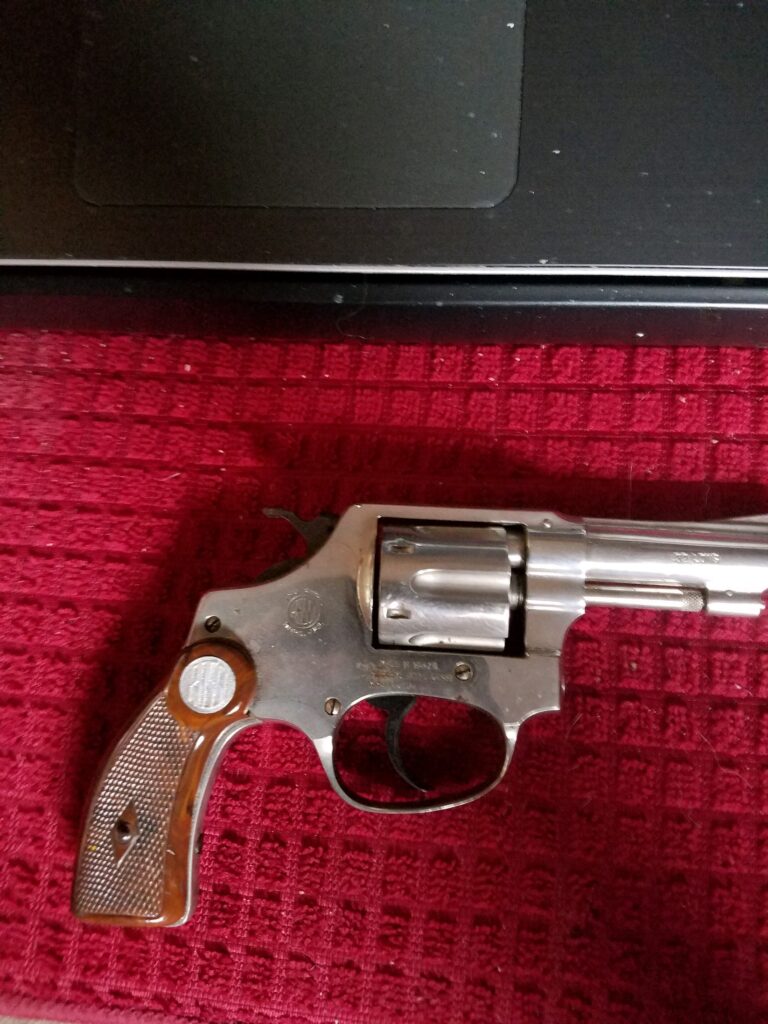
During a SLED interview, GPD officer Tim Conroy said he had moved some files off Det. Melissa Lawson’s desk, but the only relevant thing he remembered among the files was a handwritten note from Det. Don Belue related to the Looper case.
SLED subsequently interviewed Belue and asked about the note Conroy found. According to the report, Belue told the SLED agent “he believed Lt. Conroy was referring to a note he wrote regarding his contact with Don McIntyre and possible instructions regarding the handling of a handgun if McIntyre came to the LEC to turn over a handgun when Belue was not working.”
On June 8, Wakefield’s attorneys filed a motion to have the .32 Rossi revolver tested by an independent forensic analyst to determine if it matches the bullets that killed the Loopers.
Get your news faster on our social media channels
About Murder, etc.
GREENVILLE, SC: January 31, 1975: Lt. Frank Looper was about to break the biggest case of his life. On a warm winter afternoon, the county’s top drug cop walked out to his father’s garage. In minutes, they were both dead. Investigators said it was a botched midday robbery and sent a young man, Charles Wakefield, to Death Row. More than four decades later, Looper’s family believes the wrong man went to prison.
When the case is finally recorded in the giant county ledger of arrests and convictions, the charge is listed as Murder, etc. Over several decades, a deeper investigation reveals the et cetera might be a lot more important than anyone ever admitted… [MORE]
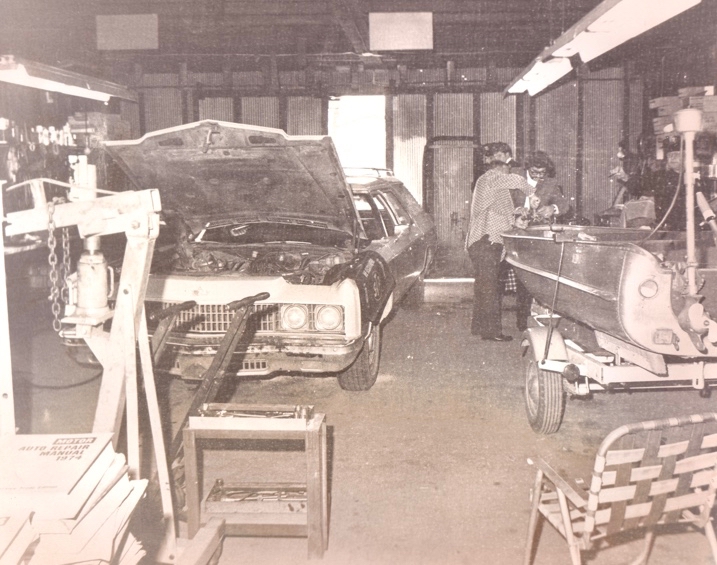
2 comments on SLED report reveals investigation into Murder, etc. discoveries
Comments are closed.
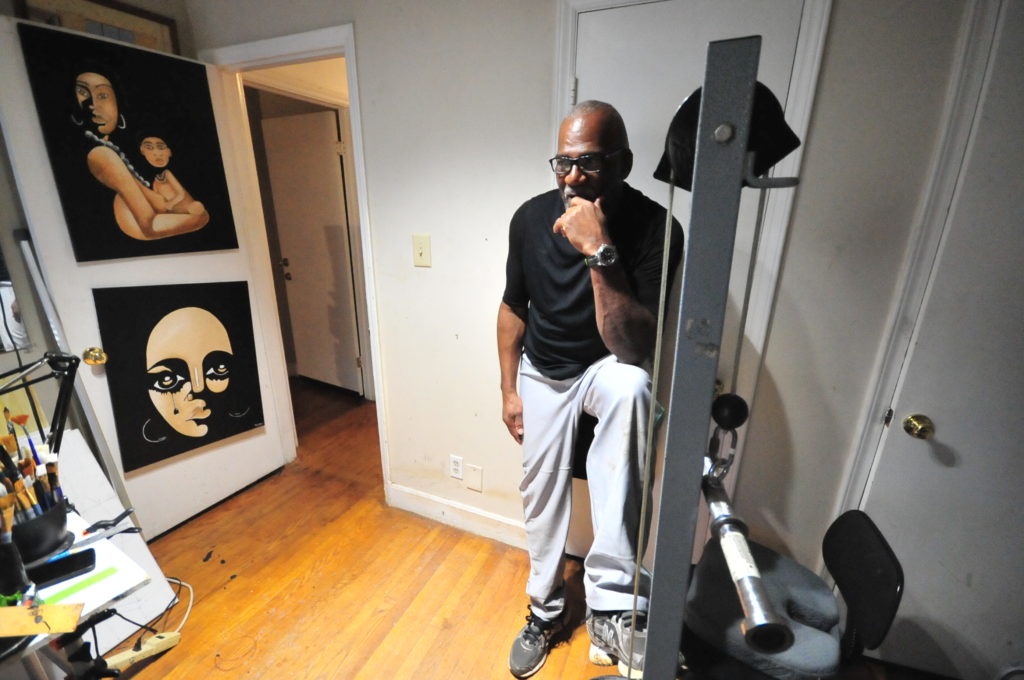
Let me be the guy that tells it just like he sees it , we were making huge progress in getting to the bottom of ” The Framing of Charles Wakefield ” until our group became infiltrated with old Law Enforcement personal from the 70’s & the direction changed because of their pressure , their lies & their ability to change the direction of discussions with threats / I always form my Opinions from what I hear , what I read & what I see – I did in the 70’s & still do today — Yes , I still know things that has NOT been talked about in Podcast or discussions
Anyone alive should be brought in to give a deposition concerning the Looper case in any way!